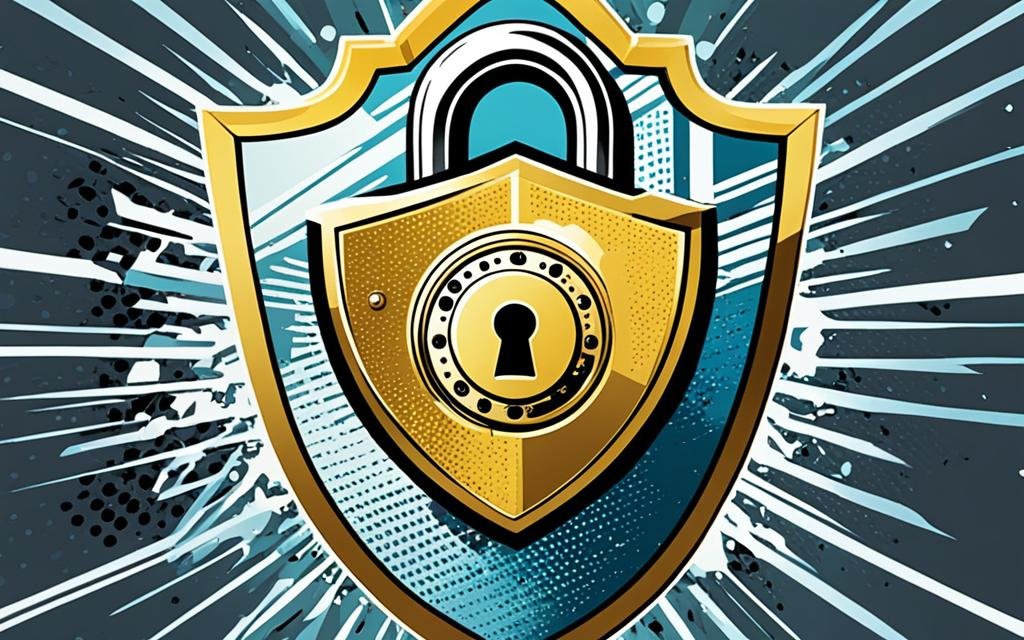In today’s digital age, online shopping has become the go-to method for purchasing goods and services. With just a few clicks, you can have products delivered right to your doorstep. However, it’s essential to prioritize the security of your online transactions to protect your sensitive data and ensure a worry-free shopping experience.
Whether you’re a seasoned online shopper or just starting out, understanding the fundamentals of secure online transactions is crucial. In this section, we will explore the importance of secure online transactions and provide you with valuable safe shopping tips to keep your personal and financial information secure.
From protecting your payment details to safeguarding against identity theft, being aware of the potential risks and implementing proactive measures is key to ensuring a safe online shopping experience. By following our expert tips, you can navigate the digital marketplace with confidence and peace of mind.
So, whether you’re shopping for the latest fashion trends, gadgets, or household essentials, join us as we uncover the secrets to secure online transactions and equip you with the knowledge to make smart and safe purchasing decisions.
Understanding Online Security
When it comes to secure online transactions, understanding online security is crucial. With the rise of online shopping, it is essential to protect your personal and financial information from cyber threats. In this section, we will explore the various aspects of online security and discuss valuable tips to keep you safe while shopping online.
The Importance of Secure Payment Methods
One of the key elements of online security is choosing secure payment methods. It is vital to use trusted and reputable payment gateways that offer robust security measures. These gateways employ encryption protocols to ensure that your payment information is transmitted securely. By opting for secure payment methods, you can reduce the risk of your sensitive data falling into the wrong hands.
Identifying Encrypted Websites
Another critical aspect of online security is identifying encrypted websites. Encrypted websites use SSL (Secure Sockets Layer) or TLS (Transport Layer Security) certificates to establish a secure connection between the website and your device. This encryption prevents unauthorized access and protects your data from being intercepted by hackers.
By looking for the padlock icon in the browser’s address bar or an “https” prefix in the website URL, you can identify if a website is encrypted. It is essential to ensure that you only enter your personal and financial information on encrypted websites to minimize the risk of data breaches and online fraud.
Remember, understanding online security is paramount for safe online transactions. By choosing secure payment methods and identifying encrypted websites, you can safeguard your personal and financial information, providing you with peace of mind while shopping online.
Tips for Safe Online Shopping
When it comes to online shopping, ensuring the safety of your transactions is crucial. Follow these practical tips to protect your personal and financial information while enjoying the convenience of online shopping.
Create Strong Passwords
One of the first steps to secure online shopping is to create strong passwords for your accounts. Avoid using common words or easily guessable combinations. Instead, opt for a combination of uppercase and lowercase letters, numbers, and special characters. Regularly update your passwords to stay one step ahead of potential hackers.
Implement Two-Factor Authentication
An additional layer of security for your online shopping accounts is two-factor authentication. By enabling this feature, you will require a secondary verification method, such as a unique code sent to your mobile device, in addition to your password. This adds an extra level of protection by ensuring that even if your password is compromised, unauthorized access will still be prevented.
Beware of Suspicious Websites and Email Phishing Scams
Be cautious when visiting unfamiliar websites or clicking on suspicious links. Scammers often create fake websites that mimic legitimate online stores to deceive unsuspecting shoppers. Always verify the website’s security by looking for the lock icon in the address bar and checking for “https” at the beginning of the web address. Avoid sharing personal information via email, especially in response to unsolicited requests.
Keep Your Devices and Software Updated
Regularly updating your devices, operating systems, and antivirus software is essential for safe online shopping. Software updates often contain important security patches that address vulnerabilities. By keeping everything up to date, you reduce the risk of falling victim to malware or other cyber threats.
By following these tips, you can ensure a safe online shopping experience, protecting your sensitive information and enjoying the convenience of e-commerce.
Secure Online Payment Options
When it comes to making secure online transactions, having the right payment options is crucial. In this section, we will explore the various secure online payment options available to ensure the protection of your sensitive data.
One key element in secure online transactions is the use of reliable payment gateways. Payment gateways act as a bridge between your online store and the financial institutions, encrypting your transaction data to prevent unauthorized access. Look for reputable payment gateways such as PayPal, Stripe, or Authorize.Net, which offer robust security measures to safeguard your payments.
Another valuable tool in enhancing your online security is the use of virtual private networks (VPNs). A VPN creates a secure connection between your device and the internet, encrypting your data and shielding it from potential hackers. By using a VPN, you can browse and make online payments with confidence, knowing that your information is protected.
By leveraging secure payment gateways and utilizing virtual private networks, you can significantly reduce the risks associated with online transactions. These measures not only protect your sensitive information but also provide peace of mind while shopping online. In the next section, we will conclude our guide with some additional tips and insights to empower you as a safe and savvy online shopper.
